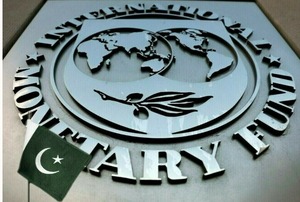-
پاکستان
Pakistan recently made global news when it paid over $3.5 billion in interest to the International Monetary Fund (IMF). The fact that this incident affects both the local population’s quality of life and the nation’s economy makes it noteworthy. However, what does this actually mean, and why is it relevant?2.
2. What Is the IMF?
The International Monetary Fund, or IMF, is a group that helps countries manage their finances, especially during difficult economic times. However, as with any loan you take out from someone, you have to pay them back with interest. The cost of using the money is the amount that is added to the amount you borrowed as interest.
3.Why Did Pakistan Take Out a Loan?
Pakistan took out a loan from the IMF in order to boost its economy since it required financial support. This money was used for a number of things, including managing the national budget, funding significant projects, and assisting the government in serving the populace.
Nonetheless, borrowing money entails obligations; the nation must repay interest in addition to the principal. This interest can build up to a significant amount over time, as Pakistan’s situation demonstrates.
4. What Was Pakistan’s Payment?
. This sum of money is enormous, demonstrating the need of prudent financial management for nations. Pakistan must still repay the principal amount it borrowed since this payment only covers interest.
5. Why Does This have an impact?
Repayment of interest is essential since it impacts the national economy. A nation may have less money to spend on vital services like infrastructure, healthcare, and education if it must pay high interest rates. The country’s citizens’ quality of life may be impacted by this.
Repaying such a substantial sum demonstrates to Pakistan that it is meeting its financial commitments. It also draws attention to the difficulties associated with borrowing money, though. The government must strike a balance between servicing its residents’ basic necessities and repaying debt.
6.How Do You Feel About This?
You may be wondering how this will effect you as a student. Essentially, the government may find it more difficult to fund parks, schools, and other youth-oriented initiatives when it has pay high interest rates. In order to guarantee that there is enough money for everyone, the government must also exercise caution in how it spends money.
Understanding financial responsibilities, such as repaying debts, is crucial since it clarifies how the world functions and the rationale behind some government policies.
7.What Actions Are Possible?
To prevent taking on excessive debt and paying exorbitant interest, nations must prudently manage their finances. This is comparable to saving your allowance rather than taking out a friend loan. Through prudent financial management and cautious planning, a nation can lower its borrowing requirements and interest payments.
Regarding Pakistan, the government is attempting to improve the country’s economy in order to lessen its dependency on loans. This entails boosting exports, developing industries, and practicing better budget management. By doing this, Pakistan will have more funds to spend on initiatives that enhance the quality of life for its people.
The major occurrence of Pakistan repaying the IMF over $3.5 billion in interest reminds us the value of sound financial management. For fourth- through sixth-graders, comprehending this idea can help them learn about interest and borrowing, as well as the significance of prudent money management for nations.
یہ بھی پڑھیں:




